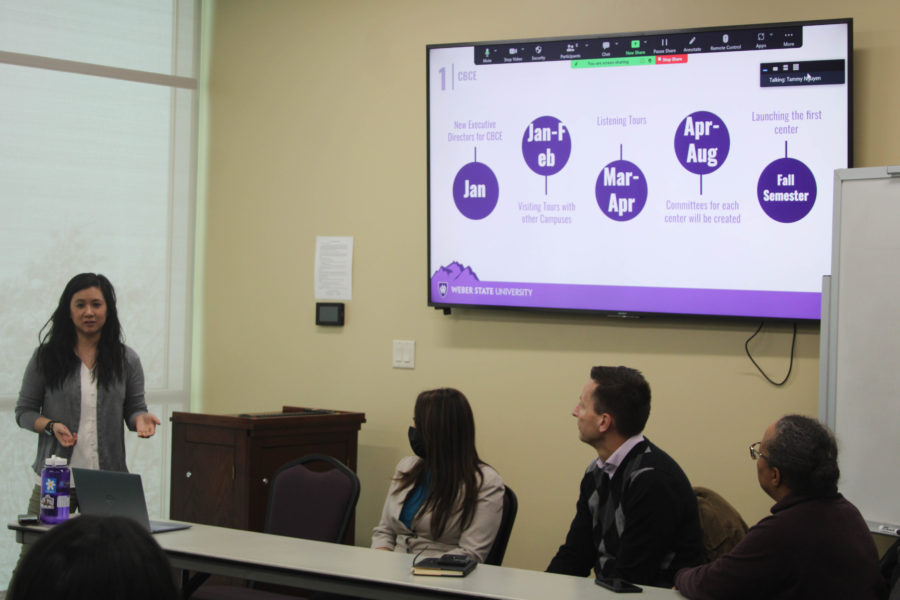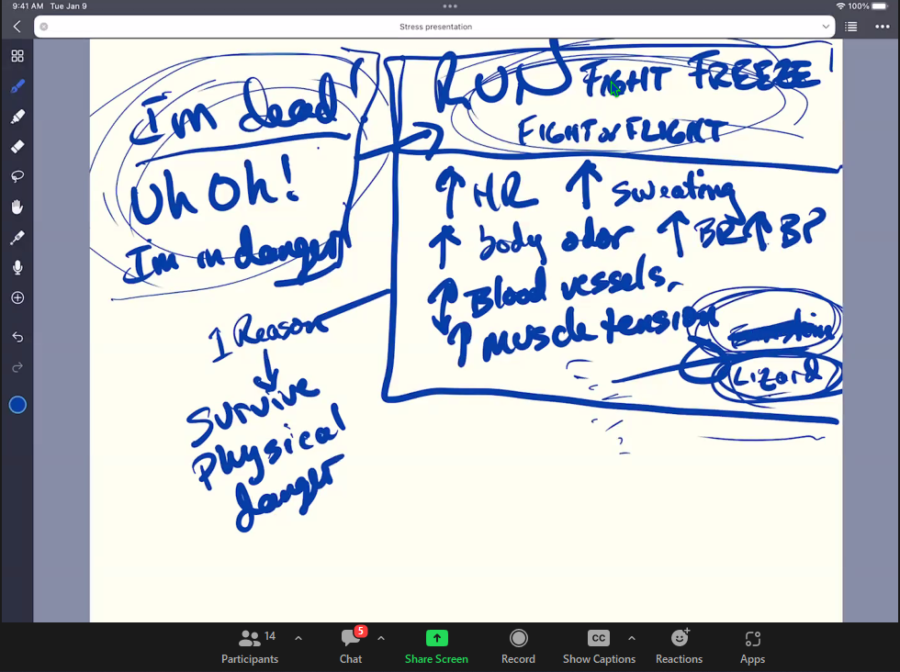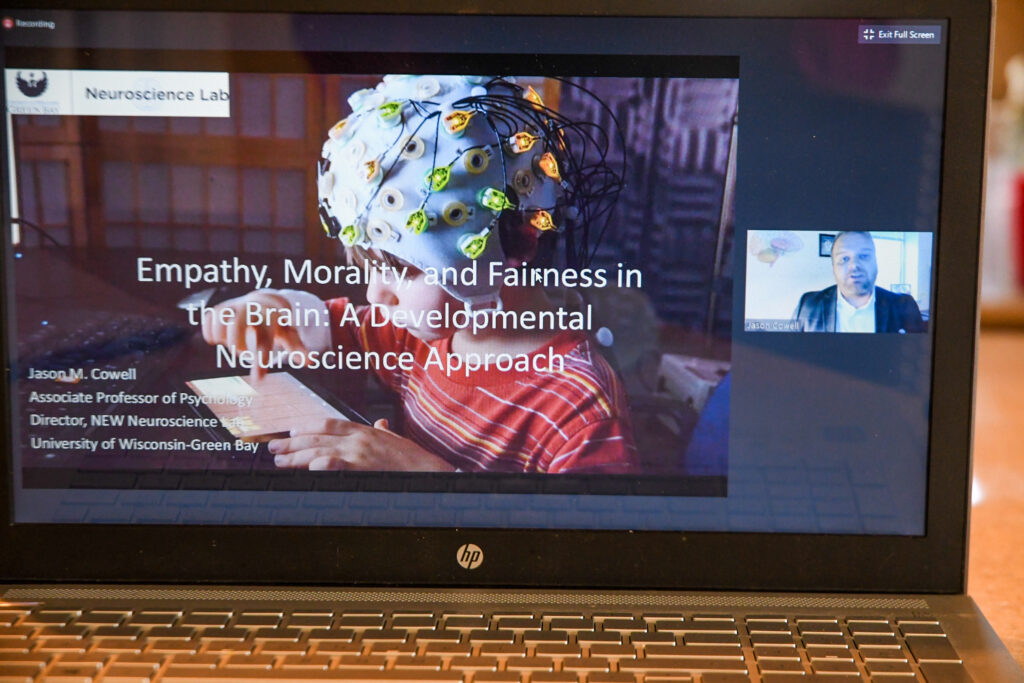
The WSU Neuroscience Program and Club wrapped up their Neuroscience Lecture series on Nov. 19 by hosting a lecture presented by Jason Cowell, “Empathy, Morality, & Fairness in the Brain,” via Zoom.
Cowell, who holds a doctorate in developmental psychology with an emphasis in neuroscience, discussed morality, fairness and empathy and how it is found within children.
He began the lecture by going over what morality is and explained that, over time, there have been many discussions on the definition of morality. The fundamental aspect of these conversations is judging whether something is right or wrong.
It also focuses on if certain behaviors will knowingly cause harm to others, whether it be physically, emotionally or spiritually.
Morality also has to do with societal norms that stop us from evolved tendencies like nepotism — the practice among those with power or influence of favoring relatives or friends, especially by giving them jobs — and tribalism — the behavior and attitudes that stem from strong loyalty to one’s own tribe or social group.
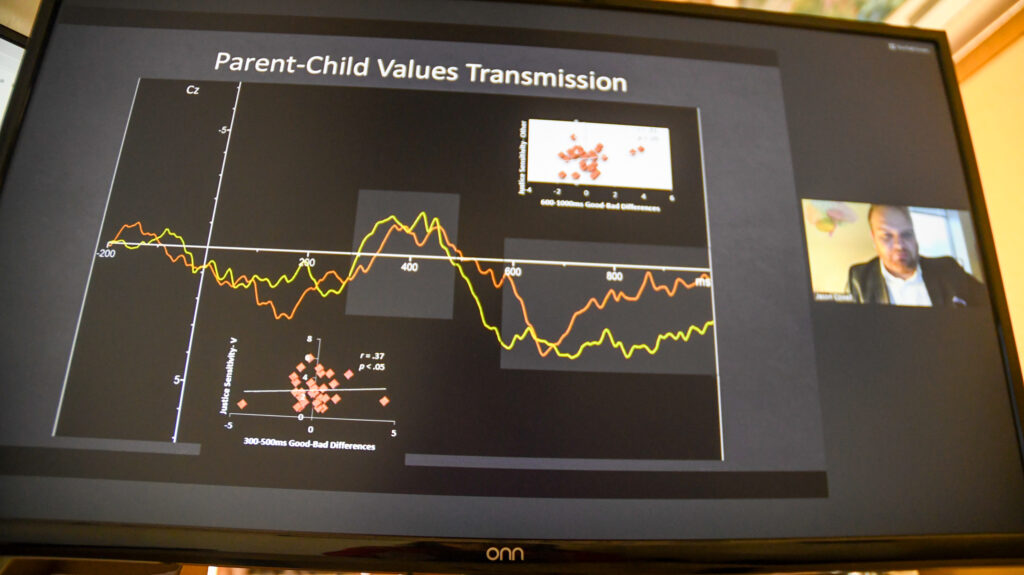
“Morality is about controlling something of our evolved nature,” Cowell said. “Our evolved nature is going to be someone selfish in the first place, so we have to curb that ever so slightly.”
He continued to explain one of the experiments that he conducted with Jean Decety, a psychology professor at the University of Chicago, showed moral dilemmas to a group of preschoolers to see if there was a link between neural processing and actual behavior.
They did this by showing the children cartoons depicting scenarios in which one character is either harming or helping the other character and watching the electrical signals in the children’s brains.
They also played a dictator game with the children to see the timing of children’s morality.
It turned out that there was an almost immediate reaction toward the actions the children were seeing, with the children feeling more negativity toward the bad actions. The children would also think back on the positive actions, they saw more than the negative ones.
Cowell said some theorists argue that morality is about gut-level instincts while others think it is a process where one thinks through the situation and tries to figure out if it is right or wrong.
When going back to expand on the initial study, it seemed like morality is instead a combination of both when it comes to making an initial judgment. However, it is the actions one purposely has to control that one will go back to think about. This can predict different moral behaviors.
“The more time you spend thinking about the good things seems to be predicting something about how much you go and share your own actions,” Cowell said.
The same study was done on one- to two-year-old children and showed that eight-month-olds tended to reach toward the good characters rather than the bad ones.
In the negative scenarios, they would also pay more attention to the victim rather than the character doing harm.
To expand on the findings, Cowell and Decety also linked how the children individually processed the scenarios to their parent’s ideas on justice and fairness and how sensitive they are to being the victim of negative scenarios themselves.
It showed that, even within one year of age, there are already differences between how children will process and think about the scenario based on their parent’s sensitivity to different things.
The researchers then built on their findings by evaluating if fairness is processed in the same way as harm. They showed children three scenarios in which there were equal, slightly unequal and extremely unequal distributions of resources.
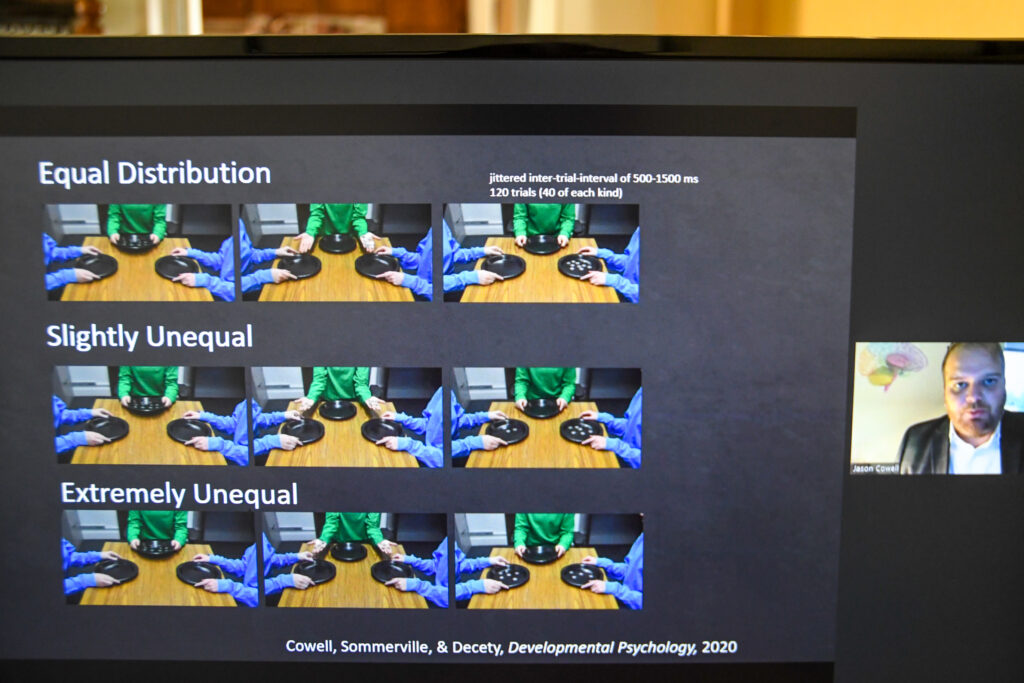
“It seems like most people in the long-term end up eventually shifting slight inequality to being more like equality,” Cowell said.
He ended the lecture by going over the future direction of his work. He also mentioned that this study is now also being done in different countries to see how these reactions change between cultures.
While it is ongoing research, it currently shows that children’s reactions not only rely on their parents but also the culture they interact with.

















